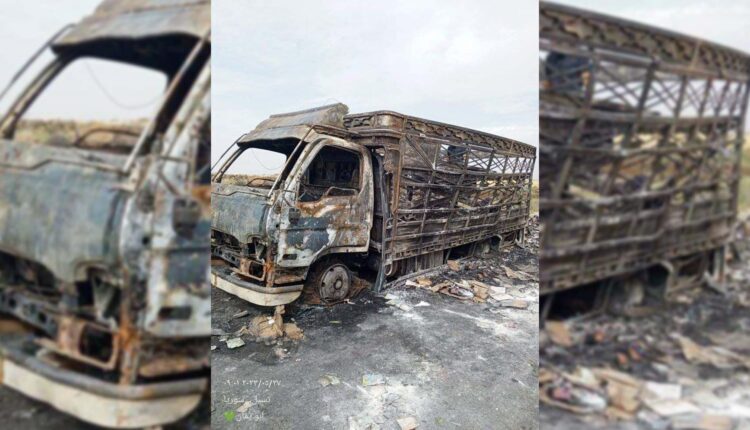
DARAA, Syria (North Press) – For the past five years, the narcotics trade has grown in Daraa Governorate, southern Syria, after the Syrian government forces took control of it in July 2018. During this time, the governorate has shifted from being a route for smuggling drugs to a center for promoting and dealing with drugs amid no actual anti-drug measures by government forces.
Sponsors of drugs
Activists in Daraa told North Press that “factions affiliated with government forces are promoting and trafficking drugs in the governorate.”
These factions, the activists said, participate in transporting the drugs from Lebanon all the way to the border with Jordan, taking advantage of the military IDs carried by their militants, which allow their vehicles to pass military checkpoints without inspections.
This was confirmed by the sanctions the United States and UK imposed on government forces commanders in Daraa for “dealing with drugs.” The latest sanctions were declared in March.
The most notable commanders on the list of sanctions are Luai al-Ali, head of the Military Security branch of the government forces in Daraa, Imad Abu Zeriq and Mustafa al-Musalama, aka al-Kasem, both commanders of groups affiliated with the Military Security, and Wasim al-Musalama, commander of Iranian-backed militias.
No real action
Military expert Ahmad Rahal believes there is “no serious intention from the Syrian regime to fight the drug business, especially in the southern region.”
He told North Press that the last campaign conducted by factions affiliated with government forces in Daraa is “an attempt to delude people that the regime is trying to stop the drug trade.”
“Drug business has become the alternative economy for Damascus, Tehran, and Hezbollah. Nobody believes the Syrian regime regarding fighting the drug trade, but it is working on promoting this narrative to make them believe.”
According Rahal, the Syrian government “does not have anything to export but drugs, not agriculture, not industry; even oil is largely controlled by the US, almost 80 percent of it.”
He described drugs as an “alternative economy” in the absence of any central bank alternatives today. The exchange rate of the US dollar was almost 9,000 Syrian pounds, and “the regime does not have foreign currency other than drug revenues.”
Big dealers spared
A political activist from inside Daraa, who preferred to stay anonymous, thinks that what is recently happening in the governorate, such as pursuing some dealers and the assassination of others, is “an attempt from Assad’s regime to show the international community and neighboring countries, which invited him to the Arab League summit and normalized with him, that he is seriously dealing with the step-for-step initiative, by capturing some drug dealers.”
The activist rules out that this pursuit will have an actual impact on stopping drug smuggling.” He justifies by saying that “these are small dealers, but the real dealer is Assad’s regime and Hezbollah.”
He noted that drug smuggling has decreased recently, but not due to political reasons. Instead, it is related to the seasons, as in autumn and winter smuggling is easier in due to fog and cold weather.
The activist notes that the Governorate of Daraa ” is plagued with narcotic pills, and it has spread among the youth and teenagers.”
The politician said he relies on civil and tribal society within the governorate to “control this destructive spread of drugs.”
He notes that the country’s economic deterioration and lack of job opportunities have “prompted al-Assad’s regime to exploit the vulnerable population in the dirty business of promoting and smuggling drugs.”
“Drug dealers and traffickers are under attack on a semi-daily basis by unknown assailants. This led to the killing of many of them, but the big dealers remain safe from attacks,” he concluded.
